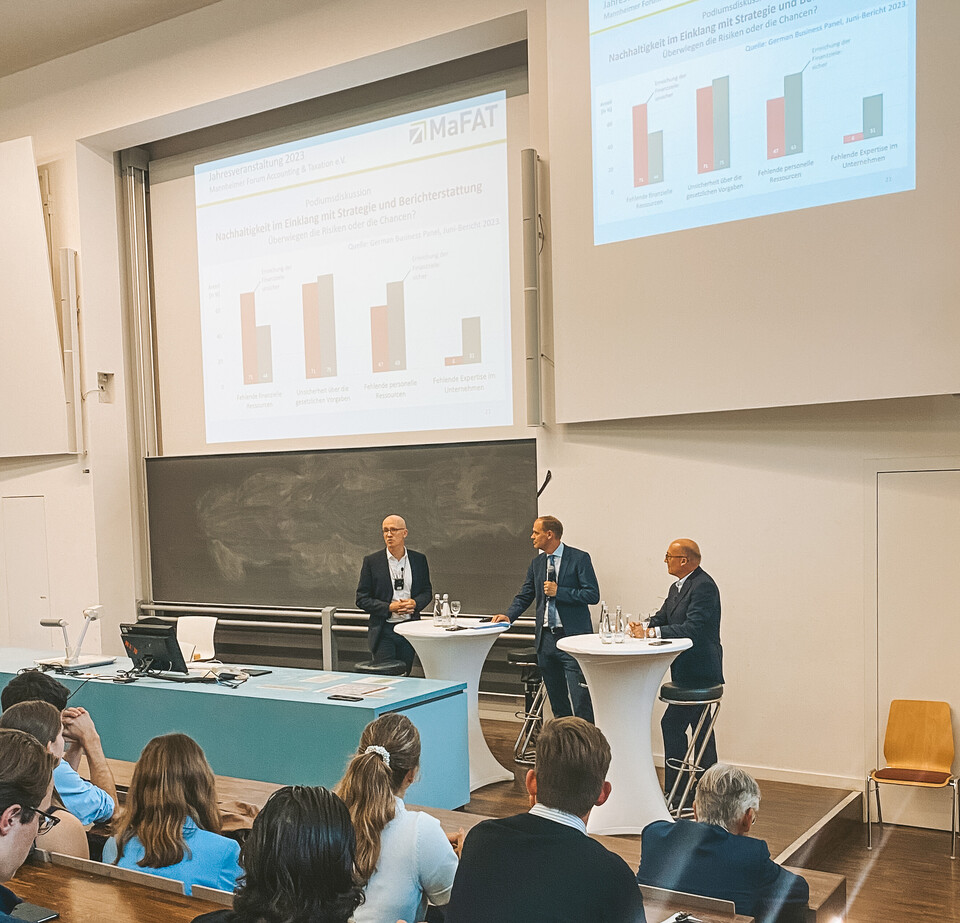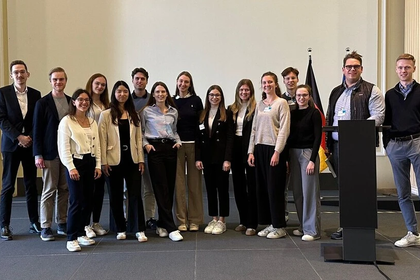Sustainability in line with strategy and reporting: Do the risks outweigh the opportunities?

In addition to the members of MaFAT e. V. and the board of the MaFAT Student Club, numerous interested students and representatives from business and science followed the event.
After a round of welcoming and introductions, awards for academic and research achievements were presented. This year, the MaFAT Research Award went to Patricia Breuer and Qi Gao Fritz. The MaFAT Master Award for outstanding master theses went to Julia Spix and Christin Schmidt in Taxation and to Gerrit von Zedlitz and Lorenz Alberding in Accounting. Prizes were also awarded to the best master's theses written in groups of 3/
The subsequent panel discussion with guests Dr. Holger Rubel (The Boston Consulting Group) and WP/
Are measures that promote a company's sustainability mostly just reactions to set regulations or are they also proactively introduced? Does a shift in thinking toward more sustainable business practices only work where companies feel compelled to do so?
One thing is certain: In today's world, sustainability is no longer a choice, but a necessity. Companies that act more sustainably than others are more competitive. At the same time, greenwashing is increasingly becoming a problem. Companies are confronted with overregulation and there is great uncertainty about legal requirements.
The goal must be that corporate and sustainability strategies are no longer considered separately, but are intertwined. Then regulation and reporting will only be flanking measures and sustainability measures will be implemented proactively.



